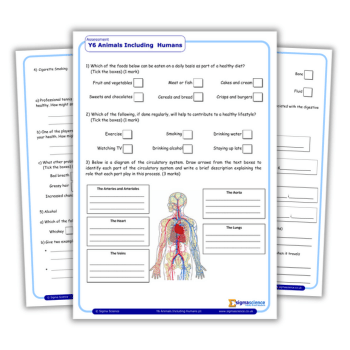Rethinking SEN assessment in a post-levels world

How do we assess SEND pupils in a post-levels world? The answer starts with SENCos asking themselves the right questions, says Daniel Sobel

- by Daniel Sobel

Whilst levels were never perfect, they provided a common language for us all to access the world of student progress and were a bedrock of stability in the edu-political landscape. We knew these levels, we trained on them – we calibrated everything according to them.
So the shift away from levels raises important questions for teachers and school leaders when it comes to data collection and reporting. What use do assessments serve? “What should good quality assessment information look like? How often should we collect and report?
Levels have been removed on the principle that schools are best placed to develop their own formative, diagnostic – and not necessarily nationally referenced – assessment systems.
This change presents a great opportunity for the profession to further develop a meaningful curriculum, and an assessment model that schools can own. It could be revolutionary for SEN students, who have suffered from being on the sidelines of a system that didn’t quite work for them.
However, the removal of levels means we need to do an awful lot of rethinking – and frankly, the current lack of clarity could be described as a horrendous mess. However, I will do my level best to piece together some useful information, highlight where we need to focus our thinking, summarise what we know so far and describe some practical outcomes for your schools. What do we need to work out?
To produce high-quality formative assessment, we need to:
- Reinvent models of ability
- Explore different concepts of progression
- Ask questions about what scale and scores mean
- Consider how we can measure competences, such as in reading
Each year, the belief is that all children should make ‘expected progess’, particulary at the end of KS1 and KS2. Not just some – all. Learning should be thought about in terms of breadth and depth of understanding, not just ‘more’.
This presents an opportunity to establish meaningful stages of assessment, possibly by interweaving the ‘domains’ in each subject, tracking progress against milestone standards (graduated, secure and moderated) and developing new tracking and reporting formats.
Assessment criteria for periodic assessment are traditionally arranged into a hierarchy, setting out what children are normally expected to have mastered by the end of each year. The SENCO’s role in this should be to comment on, and help fashion appropriate criteria for the SEN and vulnerable students in the school.
Ofsted now expects school to track their pupils’ progress, though it won’t endorse a specific approach. Inspectors will, however, want to see how often children are assessed, what tests are used, how well those tests are linked to the curriculum and how the results are used to inform the school about the quality of its teaching and the progress of its children.
Right now, there is no obvious new assessment system for you to leap to. What we have instead are questions, and few obvious answers. Try and answer the below yourself, then discuss them with your head of curriculum or headteacher:
How can our assessment…
- Be naturally inclusive of all abilities?
- Be ambitious for the full range of student abilities (and what is our ambition for SEN students)?
- Draw on a wide range of evidence to provide a complete picture of student achievement?
- Provide meaningful and understandable information to all stakeholders?
On the ground
My team and I have worked with more than 600 schools in the last year and hosted a national conference for heads to explore solutions to life after levels for more vulnerable students. I myself have sat on the Department for Education’s Rochford Review a few times.
I would like to report consistent successes around the country, though all I can really say is that we remain in a state of flux. The introduction of new legislation always throws up teething problems, but I have the sense that we’ll be dealing with issues for a good few years yet. That said, here are some of the positive ideas that my schools have shared:
A ‘What if I…?’ document for every child
Children are profiled against a set of ‘What ifs’ – for example, ‘What if I arrive late every day?’; ‘What if I have EAL?’ This is a standard formula that can be applied to all students, and help both them and the school to focus on the affirmative. ‘Can do’ statements are similarly useful.
‘Flight paths’ / ‘Trajectories’
These are useful for all categories of SEN, as they bypass the traditional summative model that assumes all pupils should be making adequate progress linearly. Instead, trajectories show how students could be making progress across a range of skills specific to their make up.
Developing school partnerships
Instead of just being used to verify judgements, partnerships with other schools could also be used for moderation purposes.
Think things over
Think on behalf of students, parents and the school about whether the new assessment system has a meaningful impact for the students under your wing. Consider the following questions:
- Can it be shared with most of your SEN students?
- Does it help teachers focus on SEN in a more nuanced, meaningful and personalised way?
- Will it identify where students are falling behind quickly?
- Will it help shape curriculum and teaching around SEN?
- Will it provide information that can be shared with parents of SEN children and be helpful at key meetings, such as Annual Reviews?
Critical issues
Ultimately, there are several critical issues that SENCos need to know about this new world of ours – some for which the DfE and co. currently do not have answers, and some of which might suggest inherent flaws in the whole shebang.
Many SEN and vulnerable pupils are being forced to engage with learning that is not suitable or appropriate. The DfE and Ofsted currently seek a ‘Best fit for all’ model, when what we actually need is to move towards an individual mastery model that encourages personalised, bespoke and creative learning.
Progress measures are only as good as the people applying them. There needs to be considerable focus on CPD, so that the average teacher can understand the nuanced developmental factors of SEN.
There also needs to be greater clarity from local authorities about education, health and care plan targets – what evidence is required, how that evidence should be presented and the expectations around evaluation.
Points of action
What Sencos should do when their school draws up a new assessment system…
1. Make sure you grasp the details of the system your school is implementing and work out what this will mean for your students.
2. Write this up and summarise for yourself initially. You could use these three general statements: Our approach to assessment is… Our method of assessment is… Our use of assessment is…
Focus on getting the rationale right early on, rather than just quickly implementing a new system you have been given. Ofsted will likely ask about how your assessment procedures impact your students and your teachers’ approach to SEN, so prepare for these two questions if you are expecting an inspection.
3. Include details about your school’s approach to assessment in your SEN information report, and ensure that parents of students with SEN understand it
4. Consider how your assessment system can be made inclusive and reflective of all abilities, and discuss any concerns you might have with your headteacher.
5. Find out how other schools have made their systems appropriate for pupils with SEN, and whether they might be useful in your setting.
About the author
Daniel Sobel is the founder, lead consultant and CEO of Inclusion Expert, having previously worked as a SENCo and assistant head; for more information, visit www.inclusionexpert.com











